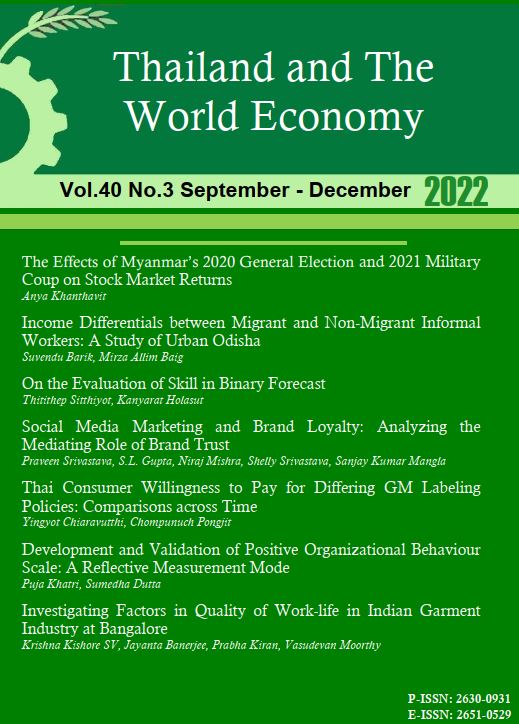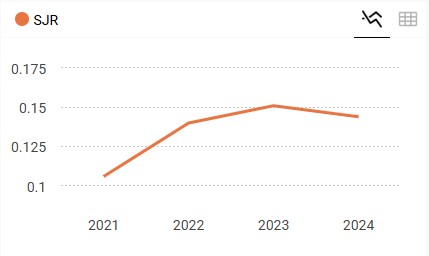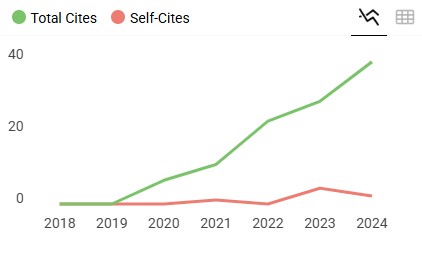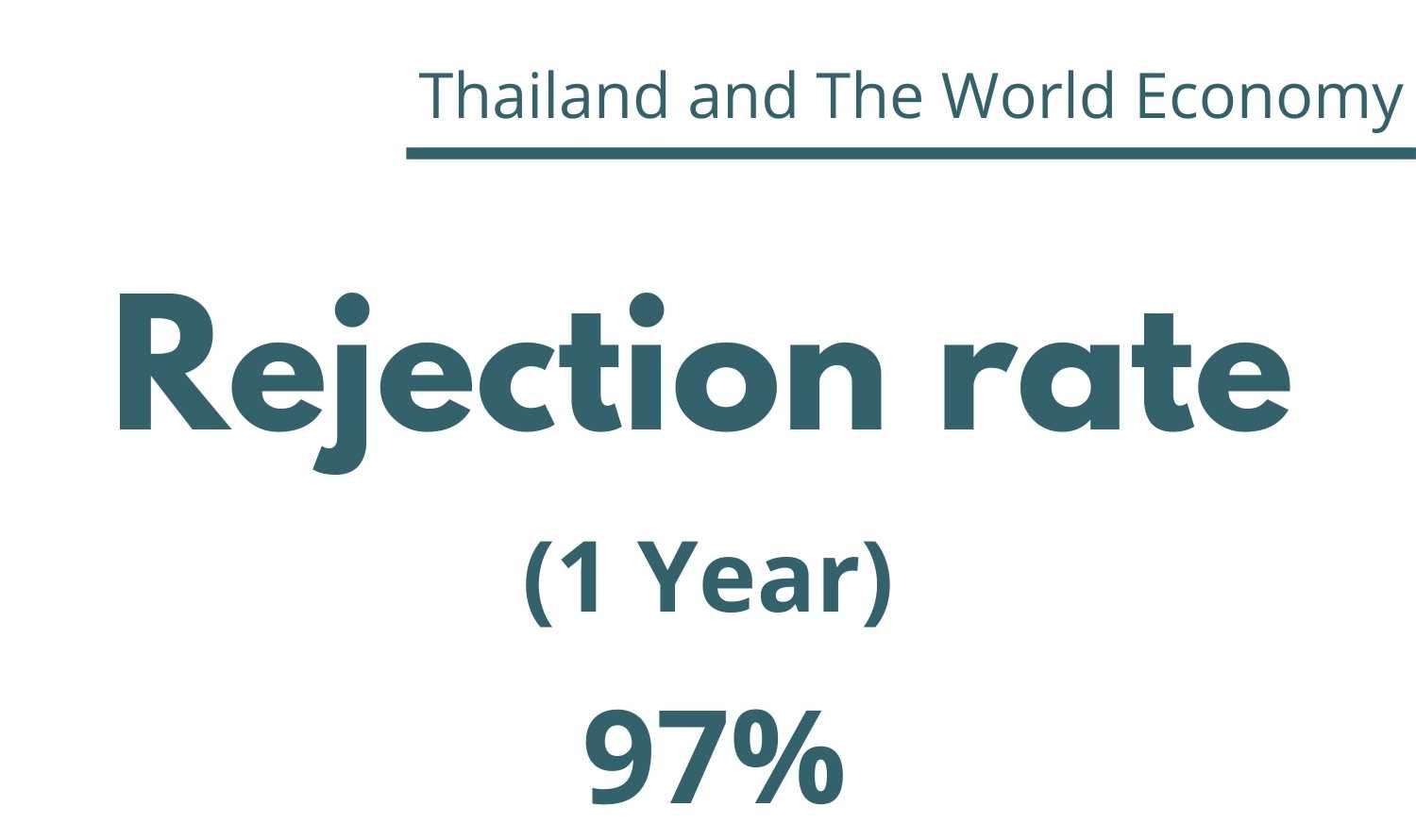Social Media Marketing and Brand Loyalty: Analyzing the Mediating Role of Brand Trust
Keywords:
Social Media, Brand Trust, Social Media Marketing, Brand Loyalty SEMAbstract
In today's connected world, social media is a sound business strategy that is embedded in an online network. It allows businesses to create customer engagement by helping them develop their brand, enhance their networking capacity, and increase their customer base. Marketers should take advantage of B2C social media's potential to promote high brand awareness by faster realization of the importance of it as a business-to-consumer (B2C) strategy. Though the impact of social media is increasing, marketers appear to have ignored the full influence of social media. Although companies have taken to social media to improve their consumer and brand loyalty, the issue persists as to how to successfully create brand loyalty on social media. The study has investigated the mediating role of Brand Trust (BT) in the relationship between Social Media Marketing (SMM) and Brand Loyalty (BL). Since the SMM is perceived to be the new world concept being adopted mostly by the new generation (young) customers, the study has also investigated whether age moderates the influence of SMM on BL or whether it is indifferent to the age of the users. Data has been collected on social media users and SmartPls has been used to test the model to find out the association between different variables of the study.
References
Agnihotri, R., Kothandaraman, P., Kashyap, R., & Singh, R. (2012). Bringing “social” into sales: The impact of salespeople’s social media use on service behaviors and value creation. Journal of Personal Selling and Sales Management, 32(3), 333–348.
Al-Sheikh, E. S., & Hasanat, M. H. A. (2018). Social media mining for assessing brand popularity. International Journal of Data Warehousing and Mining, 14(1), 40–59.
Alves, H., Fernandes, C. I., & Raposo, M. (2016). Social media marketing: A literature review and implications. Psychology & Marketing, 33(12), 1029–1038.
Balakrishnan, B. K. P. D., Dahnil, M. I., & Yi, W. J. (2014). The impact of social media marketing medium toward purchase intention and brand loyalty among generation Y. Procedia - Social and Behavioral Sciences, 148, 177–185.
Baruah, T. D. (2012). Effectiveness of Social Media as a tool of communication and its potential for technology enabled connections: A micro-level study. International Journal of Scientific and Research Publications, 2(5), 1–10.
Bélanger, C. H., Bali, S., & Longden, B. (2014). How Canadian universities use social media to brand themselves. Tertiary Education and Management, 20(1), 14–29.
Bentler, P. M., & Bonett, D. G. (1980). Significance tests and goodness-of-fit in the analysis of covariance structures. Psychological Bulletin, 88, 588–600.
Budiman, S. (2021). The effect of social media on brand image and brand loyalty in generation Y. The Journal of Asian Finance, Economics and Business, 8(3), 1339–1347.
Carr, C. T., & Hayes, R. A. (2015). Social media: defining, developing, and divining. Atlantic Journal of Communication, 23(1), 46–65.
Chaudhuri, A., & Holbrook, M. B. (2001). The chain of effects from brand trust and brand affect to brand performance: The role of brand loyalty. Journal of Marketing, 65(2), 81–93.
Coelho, Rita, & Santos. (2018). On the relationship between consumer-brand identification, brand community, and brand loyalty. Journal of Retailing and Consumer Services., 43, 101–110.
Delgado, E., & Luis, J. (2005). Does brand trust matter to brand equity? Journal of Product & Brand Management, 14(3), 187–196.
Delgado, E., Munuera, J. L., & Yague, M. J. (2003). Development and validation of a brand trust scale. International Journal of Market Research, 45(1), 1–18.
Dwivedi, Y. K., Ismagilova, E., Hughes, D. L., Carlson, J., Filieri, R., Jacobson, J., Jain, V., Karjaluoto, H., Kefi, H., Krishen, A. S., Kumar, V., Rahman, M. M., Raman, R., Rauschnabel, P. A., Rowley, J., Salo, J., Tran, G. A., & Wang, Y. (2021). Setting the future of digital and social media marketing research: Perspectives and research propositions. International Journal of Information Management , 59, 102168.
Ebrahim, R. S. (2019). The Role of trust in understanding the impact of social media marketing on brand equity and brand loyalty. Journal of Relationship Marketing, 19(4), 287–308.
Edelman, D. (2010). Branding in the digital age. Harvard Business Review, 88(12), 62–69.
Erdoğmuş, İ. E., & Çiçek, M. (2012). The impact of social media marketing on brand loyalty. Procedia - Social and Behavioral Sciences, 58, 1353–1360.
Fornell, C., & Larcker, D. F. (1981). Evaluating structural equation models with unobservable variables and measurement error. Journal of Marketing Research, 18(1), 39–50.
Habibi, M. R., Laroche, M., & Richard, M. O. (2014). The roles of brand community and community engagement in building brand trust on social media. Computers in Human Behavior, 37, 152–161.
Hair, J. F., Ringle, C. M., & Sarstedt, M. (2011). PLS-SEM: Indeed a silver bullet. The Journal of Marketing Theory and Practice, 19(2), 139–152.
Hajli, N. (2014). A study of the impact of social media on consumers. International Journal of Market Research, 56(3), 387–404.
Hazzam, J. (2021). The moderating role of age on social media marketing activities and customer brand engagement on Instagram social network. Young Consumers.
Henseler, J., Dijkstra, T. K., Sarstedt, M., Ringle, C. M., Diamantopoulos, A., Straub, D. W., Ketchen, D. J., Hair, J. F., Hult, G. T. M., & Calantone, R. J. (2014). Common beliefs and reality about partial least squares: Comments on Rönkkö & Evermann. Rganizational Research Methods, 17(2), 182–209.
Hu, L., & Bentler, P. M. (1998). Fit indices in covariance structure modeling: sensitivity to underparameterized model misspecification. Psychological Methods, 3(4), 424–453.
India Social Media Statistics 2021 | Internet & Mobile Statistics of India. (2021). India Social Media Statistics. Retrieved from https://www.theglobalstatistics.com/india-social-media-statistics/
Hair, J.F , J., Hult, G. T. M., Ringle, C. M., & Sarstedt, M. (2014). A primer on partial least squares structural equation modeling (PLS-SEM).
Kamboj, S., & Rahman, Z. (2016). The influence of user participation in social mediabased brand communities on brand loyalty: Age and gender as moderators. Journal of Brand Management, 23(6), 679–700.
Keller, K. L. (2008). Strategic brand management: building, measuring and managing brand equity. (3rd ed.). New Jersey: Pearson Prentice Hall.
Laroche, M., Habibi, M. R., & Richard, M. O. (2013). To be or not to be in social media: How brand loyalty is affected by social media? International Journal of Information Management, 33(1), 76–82.
Lohmöller, J. B. (1989). Latent Variable Path Modeling with Partial Least Squares. Physica: Heidelberg.
McKee, S. (2010). Creative b2b branding (no, really): building a creative brand in a business world. Oxford, UK: Goodfellow Publishers.
Oliver, R. L. (1999). Whence consumer loyalty? Journal of Marketing, 63(4), 33–44.
Palalic, R., Ramadani, V., Mariam Gilani, S., Gërguri-Rashiti, S., & Dana, L. (2020). Social media and consumer buying behavior decision: What entrepreneurs should know? Management Decision, Vol. 59 No. 6,1249-1270.
Puspaningrum, A. (2020). Social media marketing and brand loyalty: the role of brand trust. Journal of Asian Finance, Economics and Business, 7(12), 951–958.
Sanny, L., Arina, A. N., Maulidya, R. T., & Pertiwi, R. P. (2020). Purchase intention on Indonesia male’s skin care by social media marketing effect towards brand image and brand trust. Management Science Letters, 10(10), 2139–2146.
Sohail, M. S., Hasan, . M, & Sohail, A. S. (2020). The impact of social media marketing on brand trust and brand loyalty: an arab perspective. International Journal of Online Marketing, 10(1), 15–31.
Tavakol, M., & Dennick, R. (2011). Making sense of Cronbach’s alpha. International Journal of Medical Education, 2, 53–55.
Yoo, B., Donthu, N., & Lee, S. (2000). An examination of selected marketing mix elements and brand equity. Journal of the Academy of Marketing Science, 28(2), 195–211.
Zeithmal, V. A. (2015). Service quality , profitability , and the economic worth of customers : what we know and what we need to learn service quality. Journal of the Academy of Marketing Science, 28(1), 67–85.
Downloads
Published
How to Cite
Issue
Section
License

This work is licensed under a Creative Commons Attribution-NonCommercial-NoDerivatives 4.0 International License.










